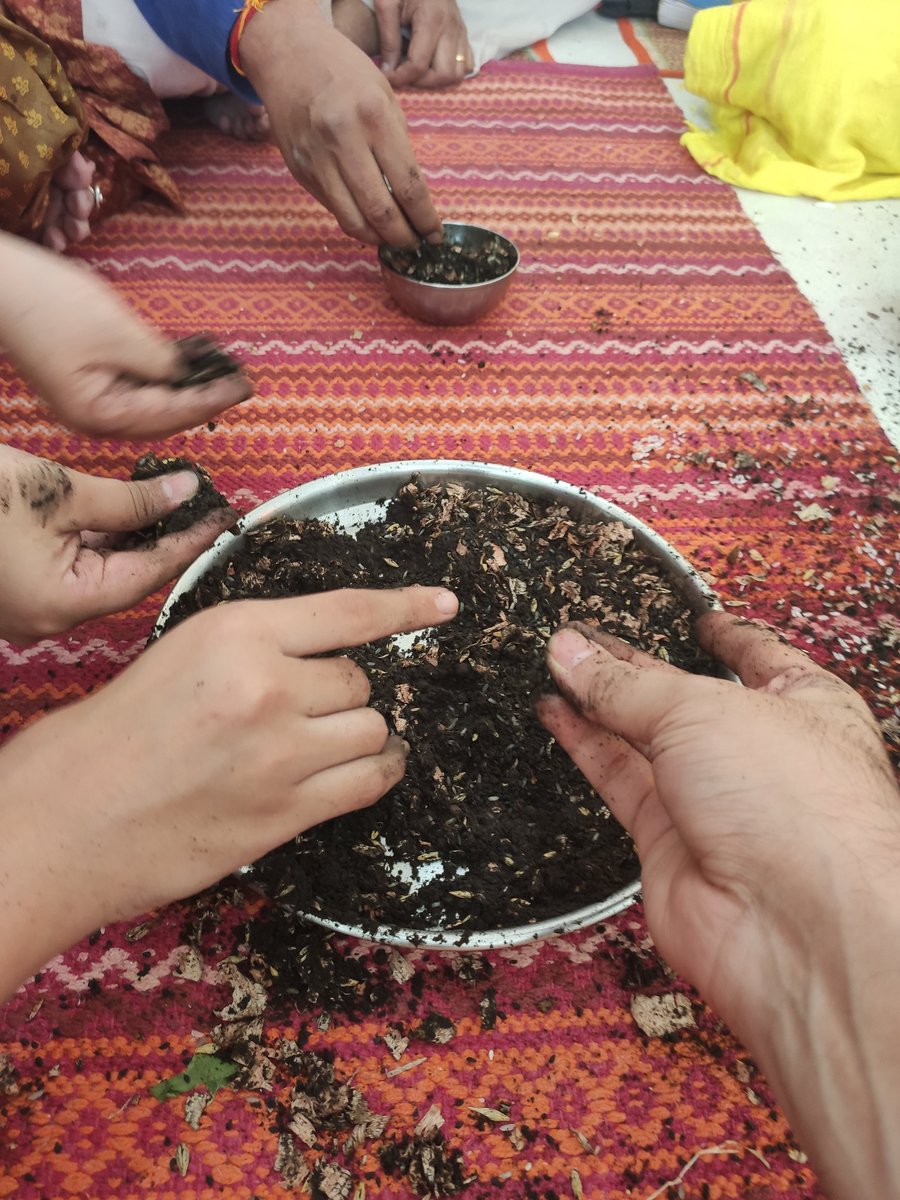On All Fools’ day, learn ten #Sanskrit words for a fool
‘ajna’ (अज्ञ): “one who does not know”
‘astadhi’ (अस्तधी): “one who has thrown away their intellect”, “or one whose intellect has set [like the sun at night]”
‘devanampriya’ (देवानाम्प्रिय): “dear to the gods”
1/n
‘ajna’ (अज्ञ): “one who does not know”
‘astadhi’ (अस्तधी): “one who has thrown away their intellect”, “or one whose intellect has set [like the sun at night]”
‘devanampriya’ (देवानाम्प्रिय): “dear to the gods”
1/n
‘balisha’ (बालिश): “one associated with a fish-hook”, i.e. one who can be deceived like fish are by a fish-hook
‘mudha’ (मूढ): “one who has been confused/bewildered”
‘murkha’ (मूर्ख): “one who is confused/bewildered [easily]”
2/n
‘mudha’ (मूढ): “one who has been confused/bewildered”
‘murkha’ (मूर्ख): “one who is confused/bewildered [easily]”
2/n
‘yathajata’ (यथाजात): “one who has not grown beyond being a newborn”
‘vivekavishranta’ (विवेकविश्रान्त): “one whose discrimination is on rest/sleeping”
‘vaidheya (वैधेय): “one who follows rules ‘vidhi’s [without thinking]”
‘hasra’ (हस्र): “one who laughs [unnecessarily]”
3/n
‘vivekavishranta’ (विवेकविश्रान्त): “one whose discrimination is on rest/sleeping”
‘vaidheya (वैधेय): “one who follows rules ‘vidhi’s [without thinking]”
‘hasra’ (हस्र): “one who laughs [unnecessarily]”
3/n
And five words for a great fool (महामूर्ख):
‘ganda-mudha’/‘vajramurkha’ (गण्डमूर्ख/वज्रमूर्ख): “extremely foolish”
‘murkhadhipati’ (मूर्खाधिपति): “the head of fools”
‘murkharaja’ (मूर्खराज): “the king among fools”
4/n
‘ganda-mudha’/‘vajramurkha’ (गण्डमूर्ख/वज्रमूर्ख): “extremely foolish”
‘murkhadhipati’ (मूर्खाधिपति): “the head of fools”
‘murkharaja’ (मूर्खराज): “the king among fools”
4/n
‘murkha-pumgava’ (मूर्खपुंगव): “the best among fools”. Robert Goldman would say “a bull among fools”
‘murkha-chakra-chudamani’ (मूर्खचक्रचूडामणि): “the round jewel in the crown among fools”, i.e. the crest-jewel among fools
#Replug
n/n
‘murkha-chakra-chudamani’ (मूर्खचक्रचूडामणि): “the round jewel in the crown among fools”, i.e. the crest-jewel among fools
#Replug
n/n
• • •
Missing some Tweet in this thread? You can try to
force a refresh
















